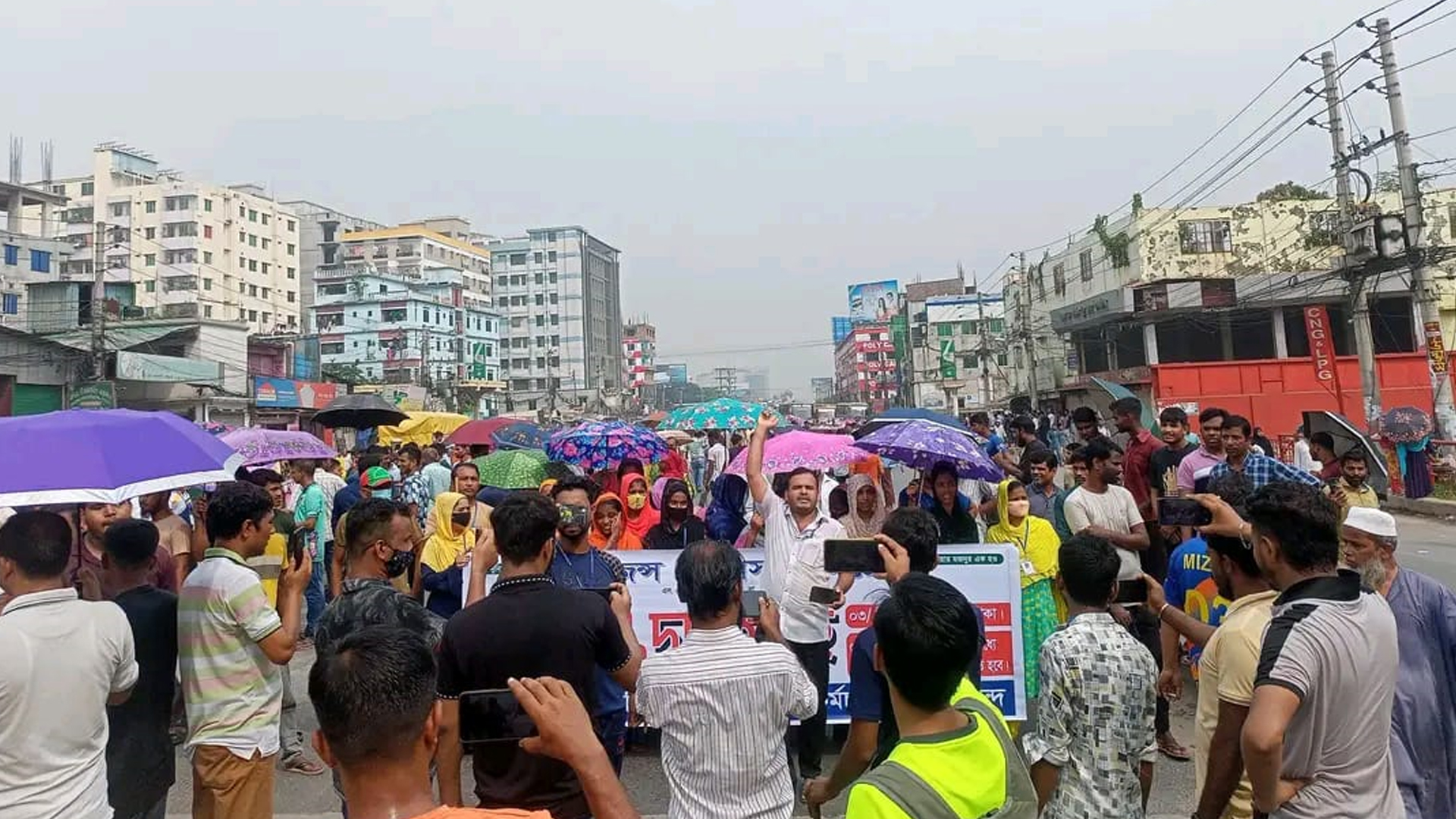RMG worker unrest spirals in Ashulia
The Ashulia industrial belt saw an increased number of garment factories shut yesterday amid a fresh wave of protests by workers of dozens of units over several demands, including pay hike.
Meanwhile, factory owners reiterated their call to ensure safety for the smooth operation of the industry as 52 factories, mostly apparel units, have been shuttered in the latest round of unrest. Of them, 19 were shut yesterday.
Md Sarwar Alam, superintendent of police at Ashulia Industrial Police-1, said 43 factories have been shut under the "no work, no pay" provision of the labour law.
Of the closed factories, 39 are members of the Bangladesh Garment Manufacturers and Exporters Association (BGMEA). A total of 233 BGMEA member factories were open in the Ashulia area yesterday.
Worker leaders, factory owners and government officials sat for a tripartite meeting at the Ministry of Labour and Employment in Dhaka yesterday as the unrest intensified again after a relative calm last week.
They agreed to issue a joint statement on the unrest today.
Labour and Employment Secretary AHM Shafiquzzaman, who chaired the meeting, suggested that the BGMEA leaders inform the ministry about the workers' demands before issuing the joint statement.
The worker leaders raised 20 demands, including a review of the wage, full implementation of the latest wage structure by all the factories, an amendment to the labour law, and an increase in annual increment and attendance and tiffin allowances.
Other major demands are the introduction of a ration system for the workers, withdrawal of the biometric attendance and blacklisting of workers, withdrawal of police cases against workers, streamlining the fabric scrap business, introducing daycare centres at the factories, and and end to illegal termination of workers.
Shafiquzzaman said the BGMEA leaders will inform the ministry about the decision on wage review, 10 percent increment and a few other demands before issuing the joint statement. The BGMEA called a meeting of their general members in the evening to discuss the issues.
Nazma Akter, president of the Sammilito Garment Sramik Federation, at the meeting urged the government to take a decision that will help both the owners and workers survive.
Babul Akhtar, general secretary of the Bangladesh Garments and Industrial Workers Federation, said they also want safety to be restored in the sector.
Tapan Chowdhury, managing director of Square Pharmaceuticals, said the unrest began in the pharmaceuticals industry, which he said is "the most organised sector" with most factories giving five bonuses and sharing profits, apart from other benefits.
AK Azad, chairman and managing director of Ha-Meem Group, said many small and medium enterprises are in "big trouble" because of the unrest, and many factories would not be able to pay salaries timely as they could not continue production.
BGMEA President Khandoker Rafiqul Islam said 260 factories were closed as they could not implement the new wage structure that came into effect in December last year. He also said the unrest has been continuing even after meeting the workers' demands.



 For all latest news, follow The Daily Star's Google News channel.
For all latest news, follow The Daily Star's Google News channel. 
Comments